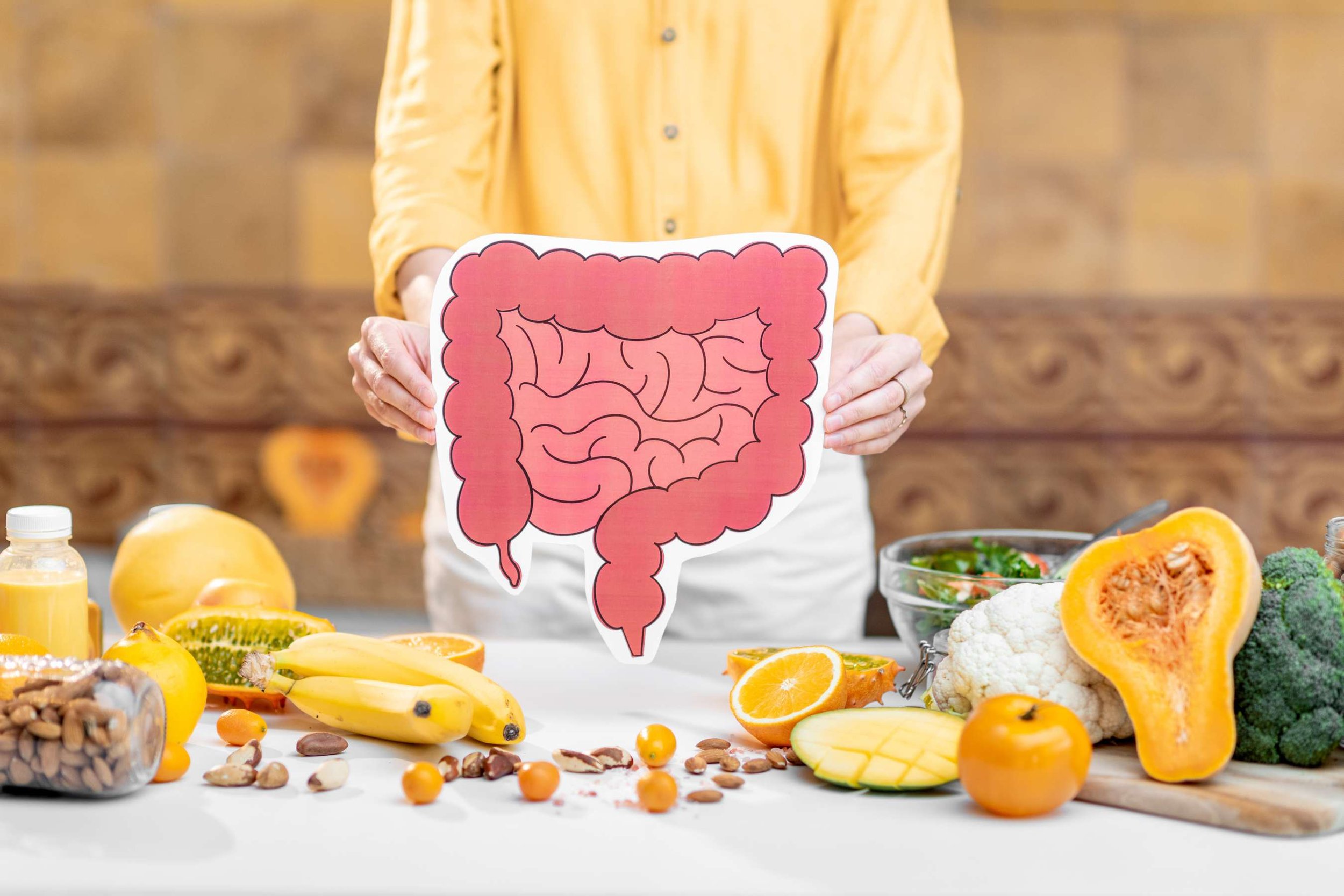Gut health is an essential yet often overlooked aspect of overall wellness. The digestive system, commonly referred to as the gut, plays a pivotal role in nutrient absorption, immune function, and even mental health. It’s not just about digestion; it’s about maintaining a balanced ecosystem within your body that supports various vital processes. This article explores the importance of gut health, how to maintain it, and the key factors that contribute to a healthy digestive system.
The Importance of Gut Health
The gut is often called the “second brain” due to its crucial role in overall health. It houses trillions of microorganisms, including bacteria, viruses, and fungi, which collectively form the gut microbiota. These microorganisms are essential for digesting food, producing vitamins, and protecting the body from harmful pathogens. A balanced gut microbiome supports the immune system, prevents infections, and can even influence mental health, often being linked to conditions such as anxiety and depression.
An unhealthy gut can manifest in many ways, from bloating and discomfort to more serious conditions like irritable bowel syndrome (IBS), inflammatory bowel disease (IBD), and even autoimmune diseases. In recent years, research has increasingly shown how gut health can affect the brain, immune system, and even metabolism.
Key Factors That Impact Gut Health
Several factors influence gut health, including diet, lifestyle, and external environmental influences. Understanding these factors can help you make informed decisions to improve your digestive health.
1. Diet: What You Eat Matters
A balanced diet is crucial for maintaining a healthy gut. Foods that promote gut health are rich in fiber, prebiotics, and probiotics. Here’s a breakdown of key dietary components:
- Fiber-Rich Foods: Fiber acts as fuel for beneficial gut bacteria. High-fiber foods like fruits, vegetables, whole grains, legumes, and seeds promote digestion and support a healthy microbiome. Fiber also helps maintain regular bowel movements, preventing constipation.
- Probiotics: Probiotics are live bacteria found in foods like yogurt, kefir, sauerkraut, kimchi, and other fermented foods. These foods help replenish healthy bacteria in the gut, supporting digestion and strengthening the immune system.
- Prebiotics: Prebiotics are plant fibers that nourish beneficial gut bacteria. They are found in foods such as garlic, onions, bananas, and asparagus. Prebiotics help the healthy bacteria in your gut thrive, ensuring that your microbiome stays balanced.
- Avoiding Processed Foods: Highly processed foods, especially those high in sugar, artificial additives, and unhealthy fats, can disrupt the balance of gut bacteria. They may contribute to inflammation, bloating, and an imbalance in the microbiome.
2. Hydration: Drink Plenty of Water
Staying hydrated is vital for digestive health. Water helps break down food and absorb nutrients more efficiently. It also prevents constipation by keeping stools soft and moving through the intestines smoothly. Aim for at least eight glasses of water per day, or more if you’re physically active.
3. Stress Management: The Gut-Brain Connection
Stress has a profound effect on gut health. Chronic stress can alter the gut microbiota, leading to digestive discomfort, inflammation, and even an increased risk of conditions like IBS. The gut and brain are closely linked through the gut-brain axis, meaning that what happens in your brain can affect your gut, and vice versa.
To manage stress effectively, consider relaxation techniques such as meditation, deep breathing exercises, yoga, or even taking short walks in nature. Getting enough sleep is also essential for reducing stress and maintaining gut health.
4. Regular Physical Activity
Exercise isn’t just good for your heart and muscles; it’s also beneficial for your gut. Regular physical activity can help keep your digestive system moving, preventing constipation, and promoting a healthy microbiome. Exercise encourages the growth of beneficial bacteria in the gut and helps manage stress, both of which are vital for digestive health.
Aim for at least 30 minutes of moderate exercise most days of the week. This could include walking, cycling, swimming, or strength training. Even light activity, such as stretching or walking after meals, can have a positive impact on gut function.
5. Avoid Smoking and Limit Alcohol
Smoking and excessive alcohol consumption can harm the gut. Smoking increases inflammation and alters the gut microbiota, while alcohol can irritate the digestive lining, leading to conditions like gastritis or acid reflux. If you’re looking to improve your gut health, quitting smoking and moderating alcohol intake is essential.
6. Antibiotic Use: Use Wisely
Antibiotics are essential for treating bacterial infections, but their overuse can harm the gut microbiome. Antibiotics not only kill harmful bacteria but also disrupt the balance of healthy bacteria in the gut. If you need to take antibiotics, consider using probiotics to help replenish the beneficial bacteria that may be lost during treatment.
Signs of an Unhealthy Gut
Your digestive system is a reflection of your overall health. Several signs may indicate that your gut is out of balance or unhealthy:
- Bloating and Gas: If you’re experiencing frequent bloating or gas, it could be a sign of digestive issues, such as an imbalance in gut bacteria or poor digestion.
- Constipation or Diarrhea: Irregular bowel movements can point to gut imbalances. Chronic constipation or diarrhea may indicate conditions like IBS or IBD.
- Food Sensitivities: If you’re suddenly sensitive to certain foods or have intolerances, it could be a sign that your gut is not processing them properly.
- Fatigue and Sleep Issues: An unhealthy gut can lead to sleep disturbances and chronic fatigue, as it plays a crucial role in producing hormones that regulate sleep.
- Mood Swings and Anxiety: Given the gut-brain connection, gut imbalances can lead to mood swings, anxiety, and even depression. Improving gut health can have a positive impact on mental health.
Improving Gut Health
Improving gut health is a gradual process, but it’s well worth the effort. Start by making small, sustainable changes to your diet and lifestyle. Incorporate more fiber-rich, probiotic, and prebiotic foods into your meals. Hydrate well, exercise regularly, and manage stress to keep your gut and mind in harmony.
If you’re dealing with chronic digestive issues, it’s important to consult with a healthcare provider. Conditions like IBS, IBD, and food sensitivities may require specialized treatments, but the right care can help restore balance to your gut.
Conclusion
Gut health is foundational to overall health and well-being. By paying attention to your diet, hydration, exercise, and stress levels, you can support your digestive system and improve your quality of life. Remember that the health of your gut impacts much more than just digestion—it influences your immune system, mental health, and general vitality. Prioritize your gut health today, and your body will thank you in the long run.






